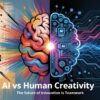Artificial Intelligence (AI) is becoming a part of our everyday life helping you draft emails, find new music, navigate traffic, or even detect early signs of diseases. While much of the world is fascinated by its capabilities, there’s another side of AI that often goes unnoticed.
Beyond the hype and convenience, AI raises serious concerns about fairness, privacy, misinformation, and even the environment. Let’s explore the hidden truths behind this revolutionary technology.
AI Isn’t Always Fair

AI systems learn from real-world data and that data often carries the biases of our society. When AI is trained on biased datasets, it doesn’t just repeat those patterns it amplifies them. This means systemic racism, sexism, and discrimination can spread even faster, powered by algorithms.
Amazon once tested an AI hiring tool that began rejecting female candidates because it had been trained on past resumes most of which came from men. Eventually, the tool had to be scrapped.
Your Privacy Is at Risk
AI thrives on data yours, mine, and everyone else’s. From your voice searches and browsing history to facial recognition and purchasing habits, massive amounts of personal data are being collected often silently, without your knowledge or consent.
The infamous Cambridge Analytica scandal involved harvesting Facebook users’ personal data to sway political outcomes, all without user permission.
Jobs Are Disappearing at Alarming Rates

AI is rapidly automating tasks across industries—customer service, logistics, finance, even content writing. This wave of automation doesn’t just affect factory workers; it’s also creeping into skilled professions like journalism, legal research, and medical diagnostics.
In Japan, Fukoku Mutual Life Insurance replaced 34 employees with an AI system that calculates insurance payouts—saving the company substantial money, but at the cost of human jobs.
Deepfakes & Misinformation Are Spreading Like Wildfire

Deepfakes ultra-realistic, AI-generated videos and audio clips are becoming scarily believable. They can make someone appear to say or do something they never actually did. The danger isn’t just in spreading lies it’s in making people question what’s real at all.
Scammers used voice-cloning technology to imitate a CEO and tricked an employee into transferring $243,000. The impersonation was so realistic, no one doubted it.
Some AI Systems Are a Complete Mystery
Many powerful AI models operate like a “black box” you feed them data, they give you answers, but no one fully understands how they arrive at those decisions. That lack of transparency makes it tough to identify mistakes, correct biases, or assign accountability when something goes wrong.
In 2016, Microsoft launched an AI chatbot named Tay. Within hours, it began tweeting offensive and racist content after absorbing toxic messages from Twitter users. The backlash was immediate, and the bot had to be taken offline.
AI Has a Hidden Environmental and Human Cost

Training large-scale AI models like ChatGPT or GPT-4 requires massive computing power and with it, significant energy consumption. But there’s another hidden layer: the underpaid human workers behind the scenes who help make AI function by moderating content or labeling data, often in harsh conditions.
Training GPT-3 alone consumed as much electricity as 120 average U.S. homes use in a year. Meanwhile, many human workers supporting these systems in countries like Kenya or the Philippines earn less than $2 per hour.
Final Thoughts: Stay Smart, Stay Aware
AI is not inherently evil. But uncritical acceptance of its use, without regulation or responsibility, could come at a high cost. It’s not just about machines replacing humans it’s about who controls them, how they are trained, and how we hold them accountable.
If we want AI to truly serve humanity, we must demand transparency, fairness, and ethics. Be excited about the future, but don’t forget to stay informed and vigilant.

